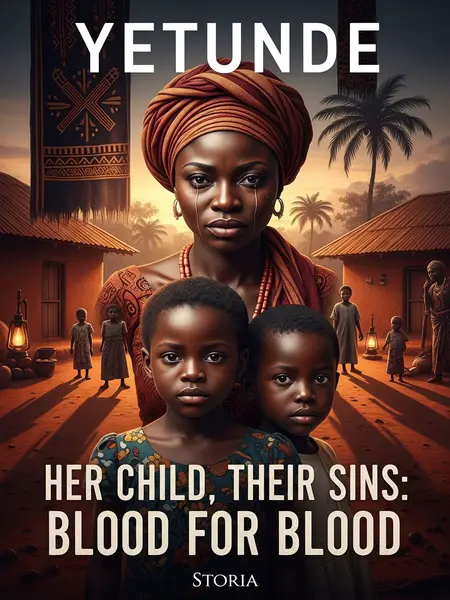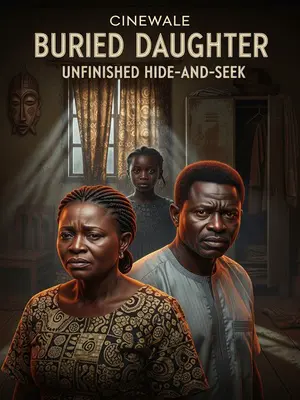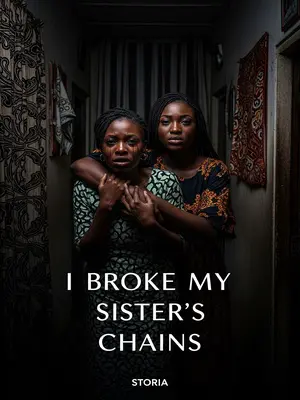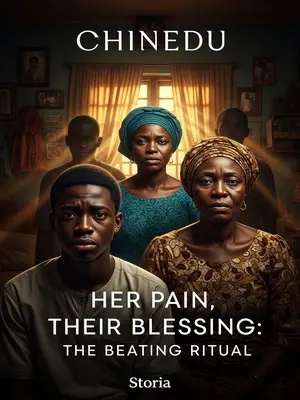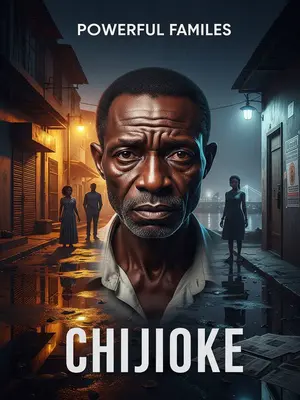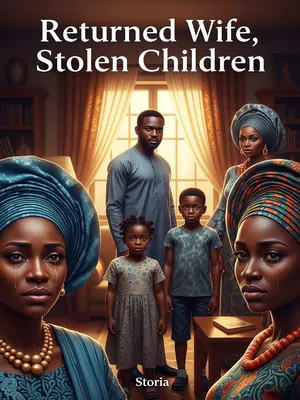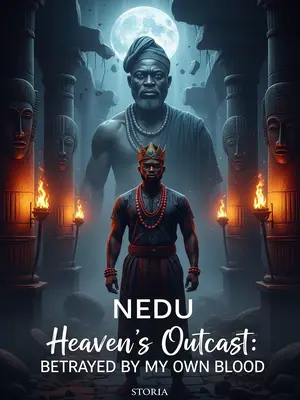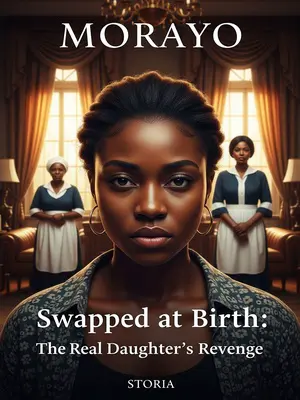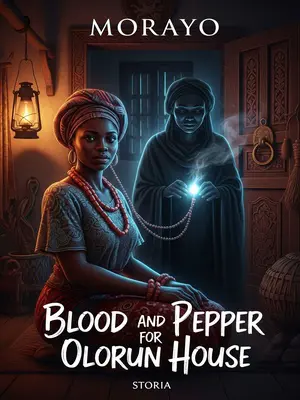Chapter 3: Blood on the Table
One day, we got a call for help from the CID in a neighbouring city—they needed backup for a murder case that crossed state lines. Our Oga, Captain Musa, sent me to join them.
That morning, as I wore my uniform, I could feel from Captain Musa’s low voice and heavy eyes that this was no ordinary case. Even my wife rubbed anointing oil on my head and prayed before I left.
The case was led by Captain Ifeanyi and Officer Halima—seasoned hands. Ifeanyi, sharp-tongued Igbo man, could sniff out a lie in a hurricane. Halima, from Kano, had eyes like hawk and a gentle touch for victims. I respected them both.
From the first talk, I learned a terrible murder had happened.
The police station was thick with tension, people moving like their shoes were too tight. The silence was the type you hear when wahala is too much for words.
A family of three wiped out: Mr. Okoli, Mrs. Okoli, and their ten-year-old, Chijioke—all gone.
When the news reached town, fear scattered everywhere. Some whispered, “Na spiritual attack?” Others locked doors by 6pm for a week.
The killer was wicked. Each victim stabbed at least twenty times, and drugs in their bodies strong enough to make person see masquerade in daylight.
No be just killing—na madness. The pathologist said the chemical was like what cult boys use for juju. Officer Halima shook her head, whispering, “Only person wey don vex finish fit do this kain thing.”
That means the killer drugged and paralysed them before stabbing.
Nobody slept in officers’ quarters that night; even the dogs barked without stopping. We all knew: this pass ordinary crime.
Worse, as if pouring out all their anger, the killer cut off their heads and arranged them on the parlour centre table.
When I heard that, my stomach twisted. The elders said, “This one pass human hand,” and people started praying with Psalm 35.
The family was laid out neat—too neat. Even the hardest among us felt cold. The priest came to sprinkle holy water, the imam recited strong verses. Evil had truly visited.
Because the family had no friends or relatives close, and lived in a remote farmhouse, their bodies weren’t found till a week later, when the smell called a passer-by.
Some say the dead led that person there. The landlord regretted renting to strangers. Neighbours didn’t sleep for days.
Police believed someone close did it—no forced entry, no broken glass, no lock forced. The back door even bolted. It was someone trusted, who could walk in like family.
The scene was wiped clean—no fingerprints, no shoe prints, no hair, no juju string, no native chalk. My heart pounded as I walked through that house.
With no CCTV nearby, the investigation was pure legwork and guesswork—old school policing. Each dead end made the case heavier.
So we dug into the victims’ social circle, asking around at the market, checking who visited, who bought them things, who sent recharge card.
That’s when we found two things: the family was new in town, and Chijioke had been involved in a terrible case a year ago.
The name stung my memory. I called my old friend Tunde, “Is it the same Chijioke?” He sighed, “Na him.”
Yes—Eniola’s case. That juvenile crime that almost broke the village.
Suddenly, air in the station changed. What people tried to bury was rising. Some said, “Maybe it’s the hand of God.”
Clearly, it was revenge. And since the victim was once a perpetrator, Captain Ifeanyi suspected Eniola’s parents, Mr. Femi or Yetunde.
Simple logic: when law fails, people take justice for hand. But in Naija, family matter dey deep, so no one judged openly.
No evidence, so we invited Mr. Femi for questioning.
Some junior officers grumbled, “Why not arrest am straight?” Oga Musa said, “Let us do things by the book.”
What happened surprised us: Mr. Femi refused to come, saying he had to care for his daughter, but agreed for us to come to his house.
His voice on the phone was calm, no shaking. Was he hiding something or just tired of life?
So we visited that afternoon. On the road, we passed cassava farms, sun hot like generator exhaust on our necks. Halima hummed a Hausa tune. Ifeanyi stayed silent, thinking deep.
